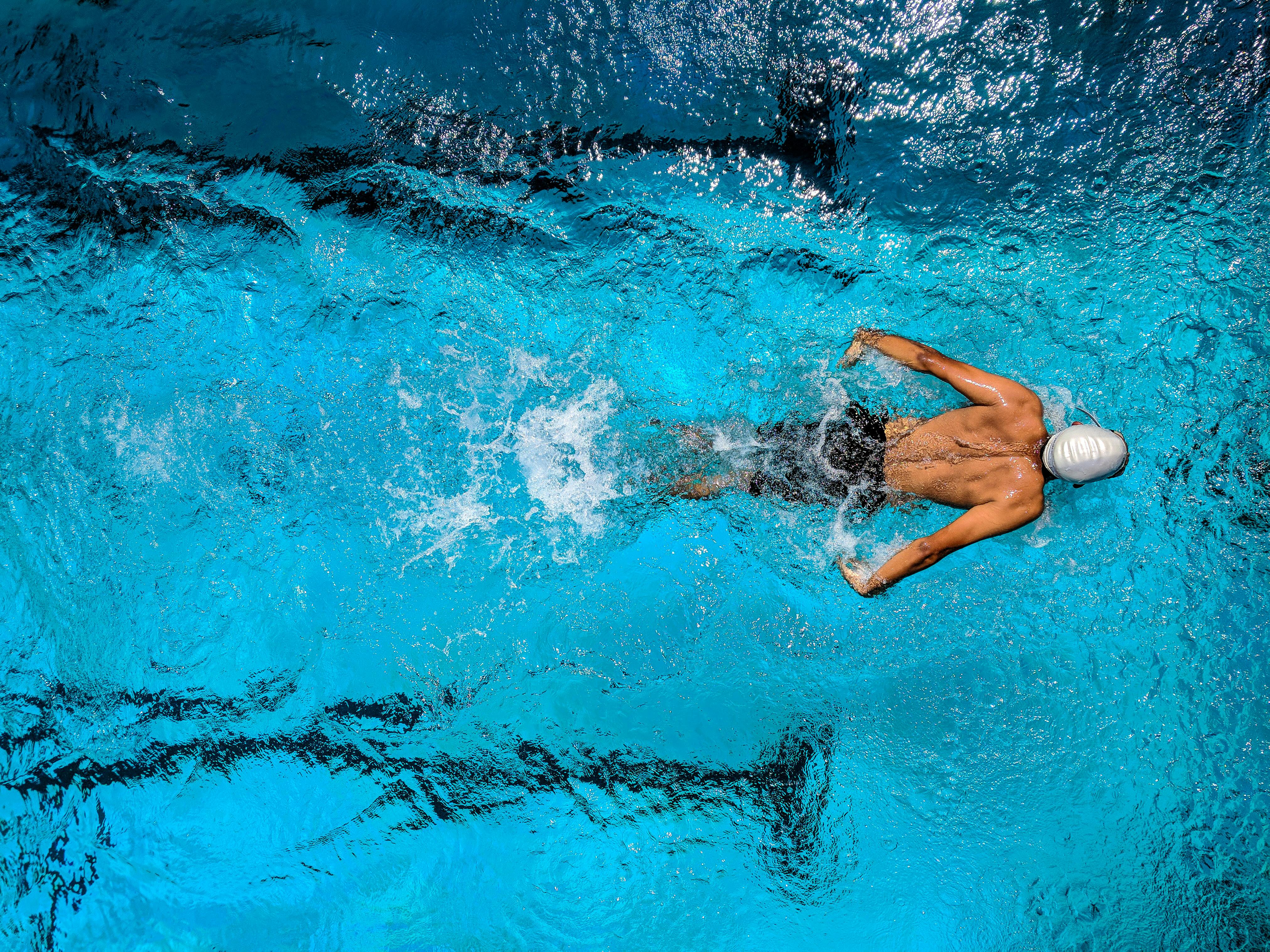How Sleep Enhances Athletic Performance: A Scientific Perspective
 Sleep plays a pivotal role in athletic performance, acting as a cornerstone for physical recovery, cognitive function, and overall well-being. Dr Andrew Watson conducted a study that highlights how increased sleep duration and improved sleep quality are linked to better athletic performance and competitive success in athletes (Watson, 2017). Despite its importance, many athletes struggle to obtain the recommended amount of sleep, which threatens both their performance and health.
Sleep plays a pivotal role in athletic performance, acting as a cornerstone for physical recovery, cognitive function, and overall well-being. Dr Andrew Watson conducted a study that highlights how increased sleep duration and improved sleep quality are linked to better athletic performance and competitive success in athletes (Watson, 2017). Despite its importance, many athletes struggle to obtain the recommended amount of sleep, which threatens both their performance and health.
Athletes require more sleep than non-active individuals to allow for adequate muscle recovery and adaptation between exercise sessions. Proper sleep supports muscle repair, growth, and memory consolidation, which are essential for mastering new skills and techniques. As major sporting events like the Olympics and Wimbledon approach, the focus on optimising sleep for peak performance becomes a topic sports people should take into consideration.
Key Sleep Stages: Slow-Wave Sleep and REM Sleep
Understanding the different sleep stages is important for increased athletic performance. According to the Idaho Sports Medicine Institute, the most beneficial sleep stages for athletes are slow-wave sleep (SWS) and rapid eye movement (REM) sleep (Idaho Sports Medicine Institute). During SWS, the body releases growth hormone, which aids in muscle repair and growth. This stage supports physical recovery, helping athletes to repair tissues and build muscle after intense training sessions.
REM sleep is essential for cognitive function such as memory consolidation and learning. During REM sleep, the brain processes and stores new information and skills acquired during the day. This is particularly important for athletes who need to master complex movements and strategies. Quality REM sleep ensures that athletes can mentally prepare for their next performance, enhancing their strategic thinking and reaction times.
The right sleep accessories can further enhance the benefits of these sleep stages. For instance, a supportive mattress that conforms to the body's natural curves can promote deeper sleep by reducing discomfort and interruptions. Similarly, pillows that provide proper neck and spine alignment help maintain sleep quality, ensuring that athletes get the restorative sleep they need.
Impact of Sleep Deprivation on Athletic Performance
Sleep deprivation can significantly hinder athletic performance and overall well-being. Watson's study highlights several adverse effects, such as impaired cognitive function, reduced endurance, increased injury risk, and compromised mental health (Watson, 2017). Athletes who do not get sufficient sleep often experience slower reaction times and poorer decision-making skills, which can negatively impact their performance during competitions.
Reduced sleep also affects physical performance. The Idaho Sports Medicine Institute notes that inadequate sleep can lead to decreased glycogen stores and impaired muscle repair processes, resulting in diminished endurance and strength (Idaho Sports Medicine Institute). This makes it harder for athletes to sustain high levels of physical activity and recover between sessions.
Furthermore, a lack of sleep increases the risk of injury. Poor sleep can lead to delayed reaction times and impaired coordination, making athletes more susceptible to accidents and injuries. It also affects the body's ability to repair and recover, leading to prolonged recovery times and potential long-term damage.
Mental health is another critical area impacted by sleep deprivation. Insufficient sleep can lead to heightened stress, anxiety, and depression, all of which can further affect an athlete's performance and motivation. Maintaining good sleep hygiene and ensuring adequate rest is essential for both physical and mental health.
Case Studies: Sleep Habits of Top Athletes
Examining the sleep habits of top athletes provides valuable insights into how prioritising rest can enhance athletic performance. Novak Djokovic, a nine-time Australian Open champion, attributes much of his success to his disciplined sleep routine. In his book Serve to Win, Djokovic emphasises the importance of going to bed at the same time every night and using techniques like yoga and meditation to unwind before sleep. He typically aims for eight hours of sleep, aligning with recommendations from sleep experts for optimal performance and recovery (ResMed).
Similarly, Olympic gold medallist Alexander Zverev prioritises sleep as a critical component of his athletic regimen. Known for sleeping up to 12 hours a day, Zverev highlights the need for extended rest to maintain peak physical and mental performance. Sleep health expert Dr Carmel Harrington supports this approach, noting that adequate sleep allows for the secretion of growth hormones necessary for muscle repair and overall recovery (ResMed).
Optimising Sleep for Athletic Success
To achieve optimal athletic performance, it's essential for athletes to prioritise their sleep quality. Implementing effective sleep hygiene practices can significantly enhance recovery, improve cognitive function, and reduce the risk of injuries.
One fundamental aspect of sleep hygiene is maintaining a consistent sleep schedule. Going to bed and waking up at the same time every day helps regulate the body's internal clock, making it easier to fall asleep and wake up naturally. Consistency in sleep patterns is particularly beneficial for athletes, who often have demanding training and competition schedules (Idaho Sports Medicine Institute).
Creating a pre-sleep routine can also signal the body that it's time to wind down. Engaging in relaxing activities such as reading, taking a warm bath, or practicing mindfulness and meditation can promote relaxation and facilitate sleep onset. Avoid electronic devices at least an hour before bedtime, as the blue light emitted from screens can suppress melatonin production, making it harder to fall asleep.
Diet and hydration play roles in sleep quality as well. Athletes should avoid heavy meals, caffeine, and alcohol close to bedtime, as these can disrupt sleep. Instead, focusing on a balanced diet rich in nutrients supports overall health and recovery, contributing to better sleep patterns.
Physical environment optimisations are essential for enhancing sleep quality. Keeping the bedroom cool, dark, and quiet can help create an ideal sleep environment. While the right mattress and pillows are critical components of this environment, maintaining a clutter-free, tranquil space is equally important for promoting restful sleep.
The Role of Sleep Accessories in Enhancing Athletic Performance
Quality sleep accessories, such as mattresses, pillows, and bedding, can enhance athletic performance by ensuring athletes get the restorative sleep they need. Proper sleep environment contributes to better spinal alignment, muscle recovery, and overall comfort, all of which are lay the ground for peak performance.
The Comfort Solutions Gel Contour Pillow, for example, is designed to cradle the head and neck, maintaining alignment with the spine. This support is crucial in preventing neck pain and ensuring uninterrupted sleep. The gel layer helps dissipate heat, keeping the sleep environment cool and comfortable, which aligns with Dr Carmel Harrington's advice on maintaining an optimal sleep temperature (ResMed).
Mattresses like the Comfort Solutions Deluxe are tailored to relieve pressure points and provide the necessary support for athletes. The Pure Foam® inside the mattress aids in muscle recovery by ensuring proper spinal alignment and reducing motion transfer. This feature is particularly beneficial for athletes who need to minimise disturbances during sleep (Idaho Sports Medicine Institute).
Additionally, the Comfort Solutions Egyptian Cotton bedding options promote better sleep quality by regulating body temperature. Egyptian cotton is known for its breathability and ability to maintain an optimal sleep environment, which is essential for athletes who need a restful night to recover from intense training sessions (Watson, 2017).
By investing in Comfort Solutions high-quality sleep accessories, athletes can create a sleep environment that supports their recovery and performance. These products not only provide comfort but also address specific needs that enhance sleep quality, ultimately contributing to better athletic outcomes.
